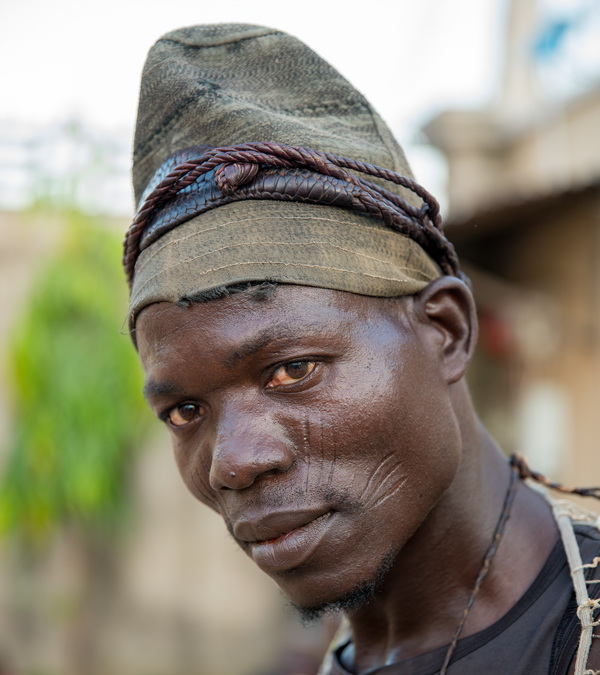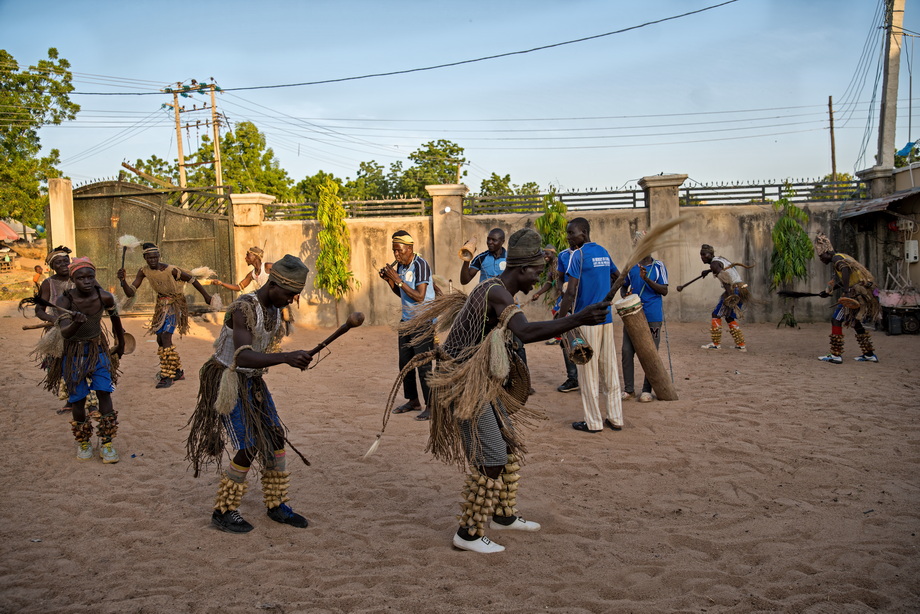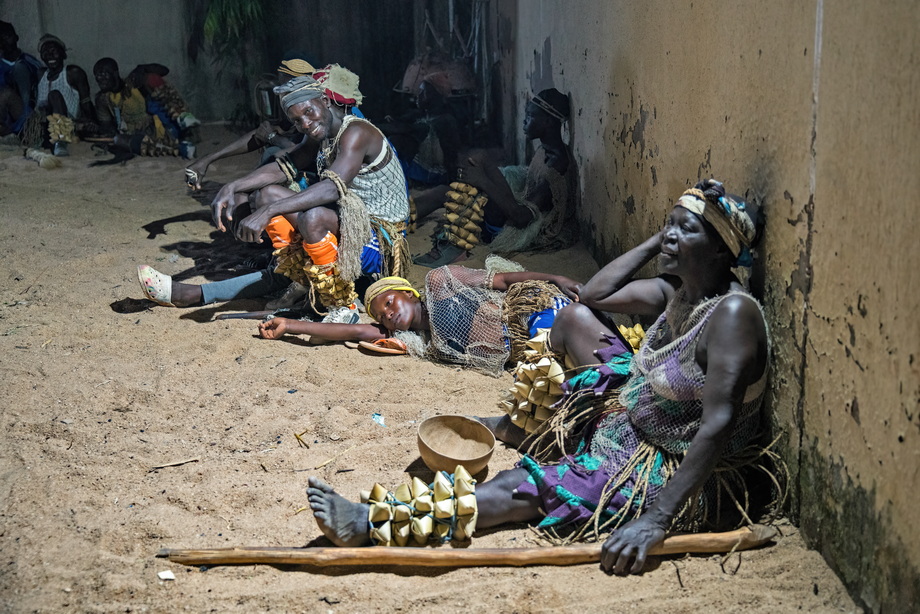

The Lunguda are a West African ethnic group living in Adamawa and Gombe States in northeastern Nigeria.
They are the only known matriarchal tribe in Nigeria. The Lunguda consider matrilineal descent in many aspects of their social organisation more important than the patrilineal descent. Clan membership may even be counted on the mother line. This custom is not found with their other neighbors or in other tribes of Nigeria.
Population is 107,000 (Peoplegroups.org / 2022)

The Longuda are located in the northeastern part of Nigeria, mostly in Guyuk, Adamawa state, Gombe state and parts of Borno
The Longuda rulers default to the Kanuri style. The seat of the traditional ruler is in Guyuk, Adamawa State. According to oral tradition, the Longuda parted from the Kanuri in Borno State. They claim to have migrated from Yemen together with other tribes such as the Kanuri, Babur/Bura.

The Longuda are primarily polygamous. The different dialects of the Longuda people perform marriage rites differently. Traditionally, a young man courting a woman will invite his friends on the night he wished to take her as his bride without her prior knowledge. On such a night, the man and his friends will abduct the woman to his cottage. This was often a forceful act. Once the woman spends a night in his cottage, his family and hers will consider them married. The bride price was usually paid afterwards. This abduction, which usually took place in the night, was not without resistance. The other young men in the womans neighborhood would attempt to come to her rescue, and a free-for-all fight will ensure. The intending groom and his company usually had to win the duel in order to take the bride to be.
However, in recent times, the influence of Christianity and cultural assimilation of neighboring societies have altered this practice. A watered-down version of this is still widely used. In this case, a man asks a woman for her consent, the woman agrees, and on an arranged night,the groom friends and bride's friend secretly picks her and her clothing from parent's house, goes over to spend the night in the grooms uncles house,living behind a token at the position where they use to sit during courtship and that seals the union. Taking her clothes along with her is her indication to everyone that she has agreed to marry the man.
The Longuda believe in total dominance hence subjecting wives to being housewives without practicing any vocation skill. Both men and women are conditioned to show no emotion with a little laxity in the women.

The Longuda people settle west of the lower Gongola mainly in and around the hills of the volcanic Longuda Plateau. They speak variants of a dialect cluster. According to Newman & Newman (1977a) and Sabe 1995 there are five distinct dialect areas relating to distinct subgroups: Guyuk (and Wala Lunguda), Cerii (of Banjiram and Gugu), Thaarʋ (Koola), Deele (Jessu), and Gwaanda (Nyuwar). Gwaanda, Cerii and Deele people call themselves Nʋngʋra(-ba). In Koola their own appellation is Longura and in Wala they use Lunguda. The suffix -ma is added when referring to the language.
The Longuda people believe in a supreme deity, one who made the heaven and the earth. They practice two main religions: Christianity and traditional religions. There is also a low practice of Islam amongst those living in the northern part of Guyuk.

The Longuda are primarily polygamous. The different dialects of the Longuda people perform marriage rites differently. Traditionally, a young man courting a woman invited his friends on the night he wished to take her as his bride, without her prior knowledge. The man and his friends would abduct the woman to his cottage, often a forceful act. Once the woman spent a night in his cottage, his family and hers considered them married. The bride price was usually paid afterwards. This abduction, which usually took place in the night, was not without resistance. The other young men in the woman's neighborhood would attempt to come to her rescue, and a free-for-all fight would ensue. The intending groom and his company usually had to win the duel in order to take the bride-to-be.
However, in recent times, the influence of Christianity and cultural assimilation of neighboring societies have altered this practice. A watered-down version of this is still widely used. In this case, a man asks a woman for her consent, the woman agrees, and on an arranged night, the groom's friends and bride's friends secretly picks her and her clothing up from her parents' house, goes over to spend the night in the groom's uncle's house, leaving behind a token at the position where they used to sit during courtship and that seals the union. Taking her clothes along with her is her indication to everyone that she has agreed to marry the man.
Traditionally, the staple crop of the Longuda is Guinea Corn (Sorghum bicolor). This used to be grounded on stone hand mill and cooked into a thick paste, "tuwo", then eaten with vegetable soup. Today, however, rice, maize, and millet form part of the staple of the Longuda. Guinea Corn still remains the dominant crop grown by the Longuda.
The Longuda, especially the Jessu dialect were very hostile to the colonial masters and missionaries. According to the oral history of the Jessu, the colonial lord who subdued them annihilated more than half of the people in the town.
Sources: